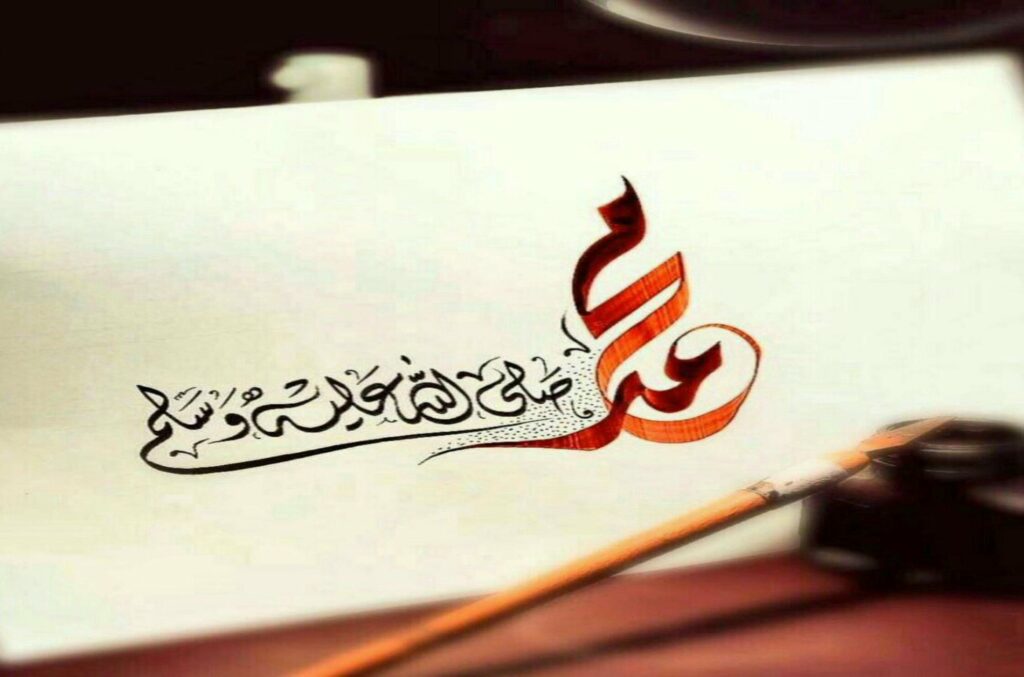In order to achieve the virtues and benefits of dhikr, it is important to do dhikr in the correct manner.
The Etiquettes of Dhikr
When doing dhikr, keep in mind the following seven etiquettes:
-
Always remember that Allah is with you. In a ḥadīth qudsī, Allah (subḥānahū wa taʿālā) says, “I am with My servant whenever he remembers Me and moves his lips because of Me” (Ibn Mājah).
-
Reflect on the meaning and purpose of the dhikr. This will help you to perform dhikr with the presence of the heart.
-
Reflect on the reward of doing dhikr in general, and the specific rewards for specific adhkār. Have yaqīn (conviction) in the reward that Allah has promised you in this world and the hereafter.
-
Try to be in a calm and quiet place, away from all distractions. Imām al-Nawawī (raḥimahullāh) writes, “Anyone making dhikr should be in the most perfect state. If he is sitting somewhere, he should face the qiblah with humility and serenity, bowing his head. If one remembers Allah in any other state it is still permissible, without any disapproval; but if there is no excuse for doing so, one would be missing out on something most excellent.”
-
Thank Allah for allowing you to remember Him. lbn al-Kātib (raḥimahullāh) said, “Allah grants the servant the sweetness of His remembrance. If the servant finds joy in it, and thanks Him for it, Allah draws him near to Himself. However, if he falls short in thanking Him, He makes him remember Him with his tongue, but he removes its sweetness from him.”
-
Be consistent. Shayṭān will try his utmost to stop you from consciously remembering Allah. Commit to a daily amount/ duration of dhikr, and remain consistent on it. Imām al-Nawawī (raḥimahullāh) advises that “anyone who has a daily litany (wird) of dhikr in the night or day or after ṣalāh or any other time, misses it and later remembers it, he should make it up when he is able to, to avoid neglecting it. If one is consistent in practising it, he will not find himself missing it; but if he is lax in fulfilling it, it will become easy to neglect it at its proper time.”
-
Always beg Allah to help you to remember Him. The Prophet ﷺ taught Muʿādh b. Jabal (raḍiy Allāhu ʿanhu) to ask Allah with the following words: اَللّٰهُمَّ أَعِنِّيْ عَلَىٰ ذِكْرِكَ وَشُكْرِكَ وَحُسْنِ عِبَادَتِكَ O Allah, help me in remembering You, in being grateful to You, and in worshipping You in an excellent manner (Abū Dāwūd).
Tafakkur (Contemplation): The Essence of Dhikr
The benefits and virtues of dhikr are not attainable merely by repeating phrases on the tongue. Rather, we have to remember Allah with the presence of the heart.
In his masterpiece ‘al-Adhkār’, Imam al-Nawawī (raḥimahullāh) writes, “The purpose of dhikr is to remember Allah with the presence of the heart. It is extremely important that every person aims for this and strives to achieve it. Thus, one should contemplate on what one is saying and try to understand its meaning. Contemplation (tafakkur) is the objective of dhikr, just as it is the objective of reciting Qur’ān. This is why the correct and preferred view is that one should elongate saying, for example, لَا إِلٰهَ إِلَّا اللّٰهُ “in order to contemplate upon it”.
Hence, the essence of dhikr is to glorify Allah with one’s tongue and heart. This is done by reflecting on:
1. The Perfect Names, Attributes and Actions of Allah. Thinking about who Allah is can help us achieve greater focus and presence of heart whilst doing dhikr. The Perfect Names, Attributes and Actions of Allah. Thinking about who Allah is can help us achieve greater focus and presence of heart whilst doing dhikr.
2. The blessings of Allah. For dhikr to be conscious, our hearts have to overflow with gratitude for the One who is the Source of all blessings.
3. The creation of Allah. To do dhikr consciously, we should reflect on ourselves, and the signs of Allah around us. Reflecting on the beauty, harmony and vastness of the earth, solar system and the heavens will help us appreciate Allah’s greatness. Going outside in nature and doing dhikr is a powerful way of doing conscious dhikr. When you are outside, train yourself to notice and feel how the entire universe praises Allah c. In every rustling leaf, ripple of water, and whistling wind we hear Allah’s praise. Even though you do not know exactly how they glorify Allah, feel that you are in harmony with all of Allah’s creation, simultaneously glorifying Him and singing His praises. This feeling will deepen as you continue to reflect and will eventually lead to deep inner spiritual bliss.
.Ibn al-Jawzī (raḥimahullāh) writes: ‘The heedless one says سُبْحَانَ الله out of habit. As for the conscious one, he is constantly thinking about the wonders of creation, or the awesome nature of the Creator, and this thinking drives him to say سُبْحَانَ الله. Thus, this tasbīḥ is the fruit of these thoughts, and this is the tasbīḥ of the conscious… Likewise, they think about the ugliness of past sins, and this leads them to ponder, to have anxiety and to have regret. The fruit of this thought is that they say أَسْتَغْفِرُ الله. This is the true tasbīḥ and istighfār. As for the heedless, they merely utter these out of habit. And what a difference there is between the two types…”
“I’m Not Thinking of What I’m Saying…”
Complete contemplation from the heart may not be possible at all times, (especially when we are embarking on our journey to Allah). Hence, sometimes shayṭān casts doubts into our hearts and we may think, ‘I am uttering سُبْحَانَ الله a hundred times but I am not thinking about it. Is there even a point?’
Undoubtedly, there is a reward in uttering سُبْحَانَ الله with the tongue. Even though we may not attain all the benefits of the dhikr, we will still attain some of the benefits. The scholars explain that the lowest level of dhikr is with the tongue. The second level is the dhikr of the heart. And the third — and highest — level is the dhikr of the tongue and the heart. Therefore, we should not give up on dhikr, even if it is just by the tongue; and we should always try and aspire to attain the highest level: the dhikr of the tongue and the heart.
The Outcomes of Dhikr With Tafakkur
Consistent dhikr with tafakkur results in experiencing the reality of īmān and iḥsān. Ibn al-Qayyim (raḥimahullāh) writes, “Tafakkur (reflection) and dhikr are two states that produce various insights and the true essence of īmān and iḥsān. These insights continue to increase the more one utilises his dhikr to deepen his tafakkur, and his tafakkur to deepen his dhikr — until eventually the heart is unlocked with the permission of the One who opens all doors, the All-Knowing.”
He also explains how dhikr with tafakkur leads to the ‘actions of the heart’: “The best dhikr is done with the tongue and the heart; and dhikr with the heart by itself is better than dhikr with the tongue alone. Remembering Allah in your heart leads you to know Him, awakens your love and shyness of Him. It leads you to fearing Him and being mindful of Him. It prevents you from falling short in obeying Him, and protects you from belittling sins. Remembering Allah with your tongue alone does not produce these benefits — and if it does produce any of these benefits, they will be minimal.”
When the love and knowledge of Allah intensifies in one’s heart, nothing can distract him from remembering Allah with his tongue and heart. Physically, he is amongst the people, but his heart is attached to the Upper Realms, as ʿAlī (raḍiy Allāhu ʿanhu) said, ‘Their bodies are in the world, and their souls are attached to the Upper Realms. – Ibn Rajab (raḥimahullāh)
Tasting the Sweetness of Dhikr
Dhikr has its own unique sweetness and joy. We may spend time doing dhikr but not experience this. This is often because of our sins. Sins deprive us of tasting the sweetness of īmān and worship. The more sweetness and joy we find in sinning, the less joy and sweetness we find in worshipping Allah. When we are sick, we do not enjoy the taste of food. Sometimes we cannot even taste the flavour of the food. If we are feeling nauseous, even the most expensive meal will not entice us to eat. Likewise, if our hearts are sick and numb due to committing sins and following desires, we cannot enjoy the ‘sweetness of dhikr’.
Conversely, dhikr and istighfār (seeking forgiveness) soften the heart. When the heart becomes soft, it displays complete humility, lowliness and full concentration to its Lord. Such a person is then able to push the world away from his heart, and attach himself to his Creator. He can then experience the delight of remembering his Lord. The scholars of the heart used to refer to such a state as the ‘worldly paradise’. Ibrāhīm b. Adham (raḥimahullāh) said, “If the kings and the princes knew what we experience of spiritual bliss and happiness, they would fight us for it with their swords.”
One of the predecessors said, “Poor people of the world. They left the world and failed to enjoy the best of it.” When asked what that was, he remarked: “The love of Allah, deep awareness of Him (maʿrifah) and His remembrance.
Search for pleasure in ṣalāh, Qur’ān and dhikr. If you find it, then rejoice. And if you do not find it, then know that the door is closed – Ḥasan al-Baṣrī (raḥimahullāh)
Being able to taste the sweetness of dhikr depends on the level of īmān in our hearts. Dhikr brings out the reality of our inner states of servitude (ʿubūdiyyah) to Allah, and only according to the quality of that state will our tongues and hearts be in sync. Thus, we must focus on nurturing the fear, reverence, hope, love and humility for Allah in our hearts. This can be done through reflecting on Allah’s creation (tafakkur).
In todayʼs age of distraction, our hearts are clouded by endless disturbances, images and doubts, which leave us struggling to focus when doing dhikr. Physically and mentally detaching ourselves from our devices at certain times is vital if we wish to experience the reality of dhikr.
Reaching a stage where we can experience the sweetness of dhikr will take time and deep inner struggle (mujāhadat al-nafs). It is difficult, and requires resolve, but the outcome is worth it: deep serenity, peace and contentment, as Allah (subḥānahū wa taʿālā) says, “Truly it is in the remembrance, (dhikr) of Allah that hearts find peace” (13:28).
The highest level (of servitude) is when the remembrance of Allah is sweeter than honey and more desirous than fresh, sweet water when thirsty on a scorching hot day. – Ibrāhīm b. Adham (raḥimahullāh)







